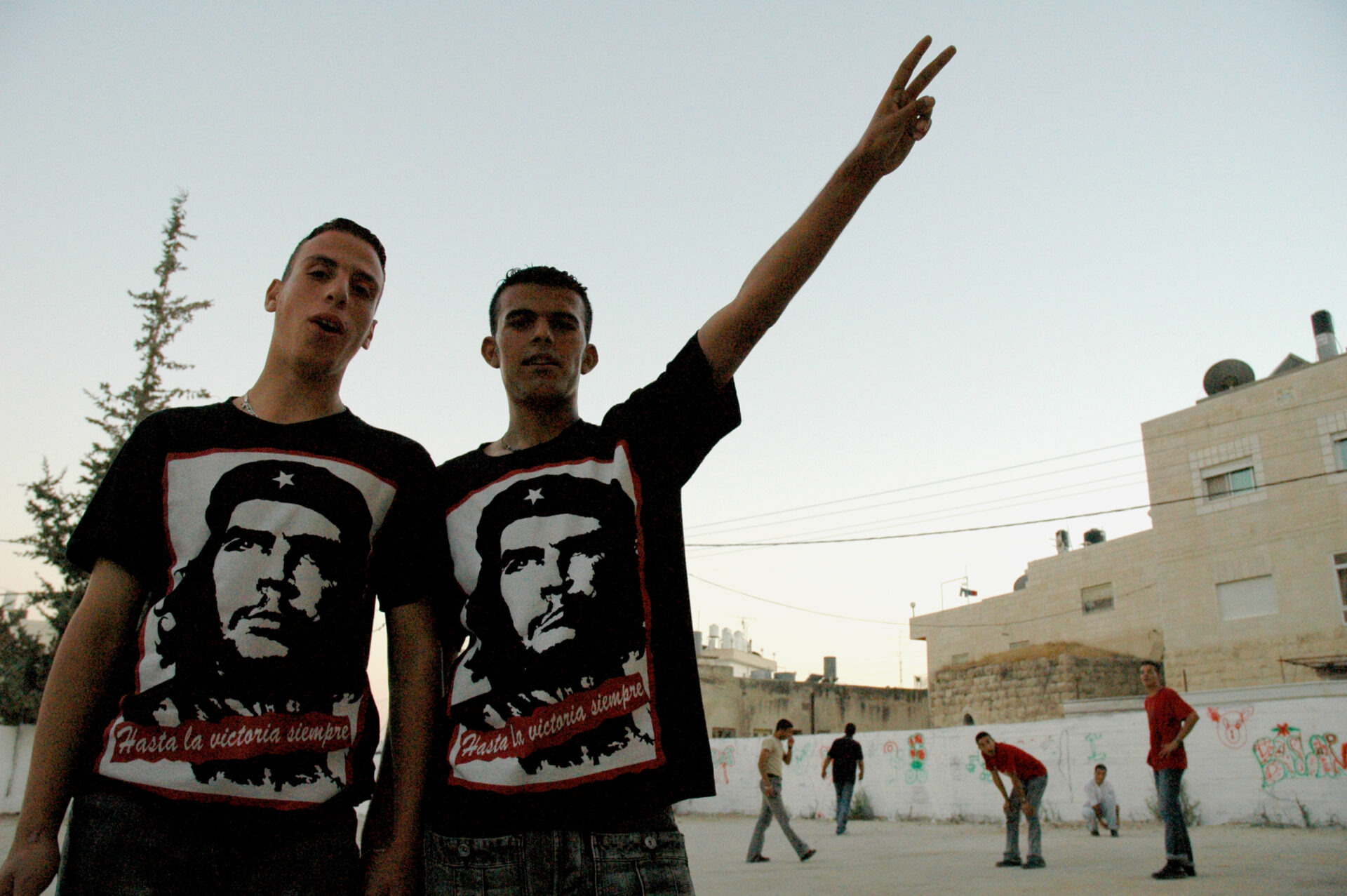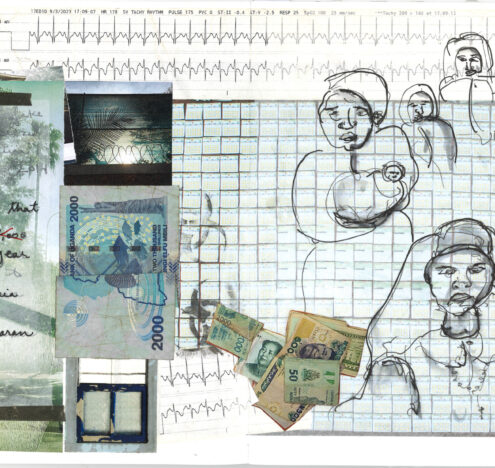On Oct. 31, 2023, Bolivian Foreign Minister Freddy Mamani announced that the country was severing diplomatic ties with Israel, citing the “aggressive and disproportionate Israeli military offensive taking place in the Gaza Strip.” Colombia, Chile, and Honduras followed with lesser diplomatic measures, recalling their ambassadors from Israel for consultation.
“If Israel does not stop the massacre of the Palestinian people, we cannot remain there,” Colombian President Gustavo Petro posted on X.com.
Chile’s Foreign Relations Ministry released a statement announcing the decision to recall its ambassador to Israel Jorge Carvajal, noting that Israel’s military operations against Palestinian civilians in Gaza “do not respect fundamental norms of international law.”
The Israeli Foreign Minister’s spokesperson Lior Haiat downplayed Bolivia’s decision, stating that, “since the change of power in Bolivia, relations between the countries have been empty of content anyway.” Haiat also linked Bolivia’s stance on the terror narrative Israel has been promoting with regard to Iran: “The Bolivian government’s decision to sever its relations with Israel is a capitulation to terrorism and the regime of the Ayatollah’s in Iran.” The Bolivian Foreign Ministry issued a statement categorically refuting Israel’s accusations, declaring that the country will not remain silent in the face of war crimes committed in Gaza “under the false justification of legitimate defense by the government of Israel.”
A Diffuse History
Since Israel’s founding, the far-flung regions have had important geopolitical ties.
In July 1937, the Peel Commission, a British entity, made the case for Palestine’s partition on the basis of the incompatibility between Palestinian and Zionist aspirations, both of which claimed Palestine as their rightful home. The Zionist claim to the territory dates to the 1917 Balfour Declaration, a thinly veiled imperialist agenda in which Britain expressed its intention to create “a national home for the Jewish people” in Palestine.
The UN General Assembly vote for partition took place ten years after the Peel Commission’s declaration, on Nov. 29, 1947. Resolution 181, otherwise known as the Partition Plan, passed with 33 votes in favor, 10 abstentions, and 10 votes against. Of the 33 votes in favor, 13 were from Latin America. The countries voting in favor were Bolivia, Costa Rica, Brazil, Haiti, the Dominican Republic, Nicaragua, Venezuela, Peru, Uruguay, Panama, Ecuador, Paraguay, and Guatemala. These 13 countries made up more than half of the twenty states from the region that participated in the vote.
Guatemala had an outsized influence on the decision. Guatemala’s UN representative Jorge García Granados, was one of the members of the UN Special Committee on Palestine (UNSCOP). He traveled to Palestine and met with members of the Zionist paramilitary groups, Irgun and Stern, both of which participated in the atrocities of the 1948 Nakba. García Granados positioned his pro-Zionist stance as anti-imperialist in the context of the British Mandate. However, he also adopted a pro-colonialist stance, citing the superior culture of the Jewish settlers and building upon the Zionist myths of agricultural superiority and innovation. In García Granados’s view, “Palestine was no more Arab than certain Spanish countries of Latin America were Indian.”
On May 14, 1948, upon David Ben-Gurion’s declaration of the establishment of Israel, Guatemala was the second country globally to recognize Israel, and the first to do so in Latin America. García Granados became the first Guatemalan ambassador to Israel when Guatemalabecame the first country to open an embassy there in 1956.
At the opposite end of the political spectrum, Cuba was the only Latin American state to reject the partition plan. “We have solemnly proclaimed the principle of self-determination of peoples, but with great alarm we see that when the time comes to apply it, we forget about it,” Cuban representative to the UN Dr Ernesto Dihigo, told the General Assembly in 1947.
Nonetheless, In 1949, Cuban President Carlos Prío Socarrás recognized Israel. Under Fidel Castro’s leadership, diplomatic relations between Cuba and Israel were retained until September 1973, when ties were severed by Cuba after the meeting of the Non-Aligned Movement in Algeria. Cuba sought to strengthen relations with Arab countries and sent aid to Syria and Egypt in the Yom Kippur War in October 1973. Despite the earlier diplomatic relations with Israel, Cuba maintained its anti-colonial stance and aided Palestinian revolutionary movements by providing training in guerilla tactics. Argentine revolutionary Ernesto Che Guevara, who formed part of the July 26 Movement, had visited Gaza in 1959, marking the beginning of Cuba’s involvement in Palestinian anti-colonial resistance.
Israeli Arms and Training for Latin American Dictatorships
In the aftermath of the Cuban Revolution in 1959, the US’s growing concern with socialism and communism in Latin America led the country to prop up several right-wing military dictatorships in the region — Brazil, Chile, Guatemala, Uruguay, Paraguay, and Argentina, to name a few.
Israel keeps a close eye on elections in Latin America since the shift to the left or the right can impact diplomatic relations.
Israel’s involvement with Latin American dictatorships was mostly related to the sales of military technology and weaponry. When the US refrained from sending arms when there were cases of increased scrutiny over human rights violations — such as in 1976 in Chile — Israel stepped in to fill the gap and supply arms. Declassified Central Intelligence Agency (CIA) documents detail Israel’s relationship with Chile in the years of Augusto Pinochet’s dictatorship, noting that since the US applied an arms embargo on Chile after the murder of Chilean diplomat Orlando Letelier in Washington in 1976, Israel supplied the dictatorship with weapons. The CIA document also observes that “Israel – – even under a Labor government – – is unlikely to jeopardize its military relationship with Santiago to support a restoration of democracy in Chile.”
In Guatemala, the ethnic cleansing of the Maya population resembled the colonial ethnic cleansing of the Nakba. Between 1960 and 1996, over 200,000 were murdered by the US-backed military dictatorships in Guatemala. In the 1980s, under the dictatorship of José Efraín Ríos Montt, 300 Israeli advisers in Guatemala were involved in training the country’s armed forces. “Israel is our principal supplier of arms and the number one friend of Guatemala in the world,” then-chief of staff Gen. Hector Lopez Fuentes stated in 1983.
Right-Wing Support for Israel in Latin America
Israel keeps a close eye on elections in Latin America since the shift to the left or the right can impact diplomatic relations.
The current responses from Bolivia, Colombia, and Chile are not unprecedented. Cuba has not yet restored diplomatic ties with Israel, while Chile is home to the biggest Palestinian diaspora community in Latin America. And while Latin American governments have upheld the international consensus over the two-state paradigm, the left wing in the region has a decidedly pro-Palestine stance which has on occasion been revealed in diplomatic decisions. At the helm of this position were Fidel Castro, the late Venezuelan President Hugo Chavez, and Bolivia’s former president Evo Morales.
Venezuela and Bolivia severed diplomatic ties with Israel during Operation Cast Lead, in late 2008, when the Israeli Defense Forces (IDF) used white phosphorus over civilian areas in Gaza, in addition to bombing the enclave. Ecuador’s President Rafael Correa called to condemn Israel for crimes against humanity, while Chavez called for Ehud Olmert to be tried for war crimes.
In 2014 Morales called Israel a terrorist state over the military aggression in Gaza known as Operation Protective Edge. Morales revoked the travel agreement which had previously allowed Israelis to travel to Bolivia without obtaining a visa. Chile, Brazil, El Salvador, Peru, and Ecuador recalled their ambassadors from Israel — a move that Israel alleged emboldened Hamas.
When Latin America experienced a right-wing shift in governance, Israel reaped diplomatic benefits.
Bolivia’s stance on Israel reversed under the brief term of right-wing Jeanine Áñez from 2019 to 2020. Áñez renewed diplomatic ties with Israel after the ten-year hiatus under Morales. Her term saw domestic aggression against the country’s Indigenous population, and appeals for Israel’s expertise in the “fight against terror.”
In 2017 Israeli Prime Minister Benjamin Netanyahu became the first sitting prime minister to visit the region. In October 2018, Netanyahu expressed his delight at Jair Bolsonaro’s victory in the Brazilian elections. Far-right Bolsonaro is a staunch supporter of Brazil’s military dictatorship. In the first few months of his presidency, Bolsonaro ordered the army to commemorate Brazil’s 1964 military coup, prompting opposition from torture victims and relatives. In 2019, Netanyahu became the first Israeli prime minister to visit Brazil for Bolsonaro’s inauguration as president. Within the first months of his presidency, Bolsonaro signed six cooperation agreements with Israel relating to security technology.
Bolsonaro aligned himself with former US President Donald Trump’s foreign policy when he recognized Jerusalem as Israel’s capital and planned to move the Brazilian embassy to the city, although the relocation never occurred. He followed Guatemala, which, under right-wing President Jimmy Morales, was the first Latin American country to announce the relocation of its embassy from Tel Aviv to Jerusalem in 2017 and also positioned itself as a mediator to encourage other countries in the region to follow suit. Guatemala was the first Latin American country to open an embassy in Jerusalem back in 1959 (the consulate was relocated to Tel Aviv when the UN General Assembly passed Resolution 478 on the status of Jerusalem, which condemned Israel’s annexation of East Jerusalem). The question of the location of Israel’s capital is highly contentious, as most of the international community, and the UN, have condemned and do not recognize Israel’s annexation of Jerusalem.
The Question of Iran
The tense relationships between Israel and Iran spill over into relations with Latin American countries as well.
In 2014, before meeting then-Peruvian President Ollanta Humala in Jerusalem, Israeli Prime Minister Benjamin Netanyahu accused Iran of engaging in subversive activities globally, including in Latin America.
Under Chavez, Venezuela had strengthened its ties with Iran, particularly due to both countries’ anti-imperialist stances, and relations between both countries remained strong even after Chavez’s passing. In 2006, Cuba signed agreements with Iran relating to economic development. Iran also maintains agreements with other Latin American countries, such as Bolivia and Brazil. Analysts, however, maintain that Iranian influence in the region is still minor.
For Netanyahu, however, making the link between Iran and Latin America’s support for Palestine builds on a narrative that depicts Israel as facing imminent fatal threats.
Iran’s financial and diplomatic support for Palestinian liberation stands in contrast to the stances taken by the rest of the international community — with the exception of Latin America which has the potential to influence foreign policy in the region.
Playing upon Western mistrust of Iran, as well as Western support for Israeli colonization, Netanyahu’s claims of Latin America capitulating to Iranian influence may resonate with the West, but such fear-mongering is unlikely to influence Latin American diplomacy, which is still heavily determined by shifts in the region’s political spectrum.





















